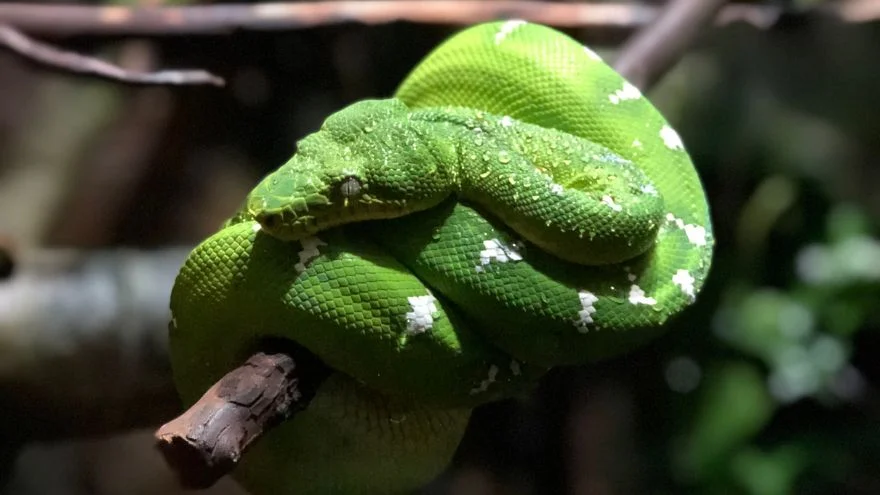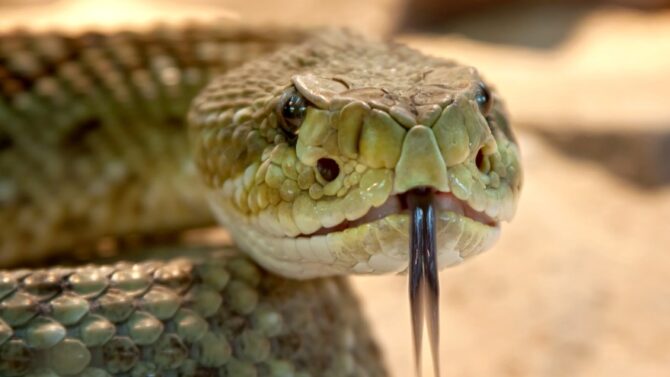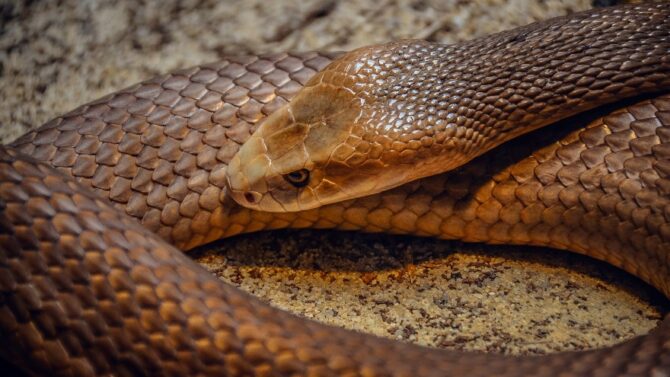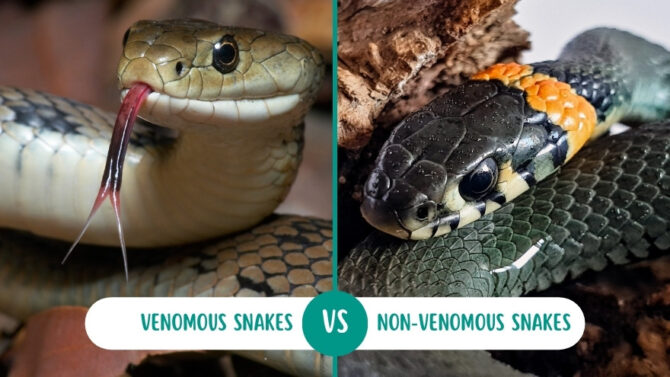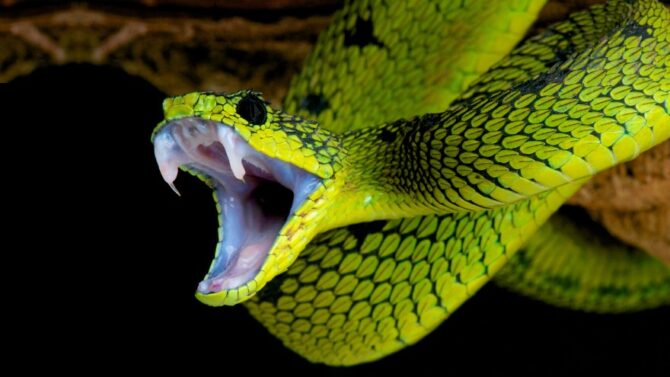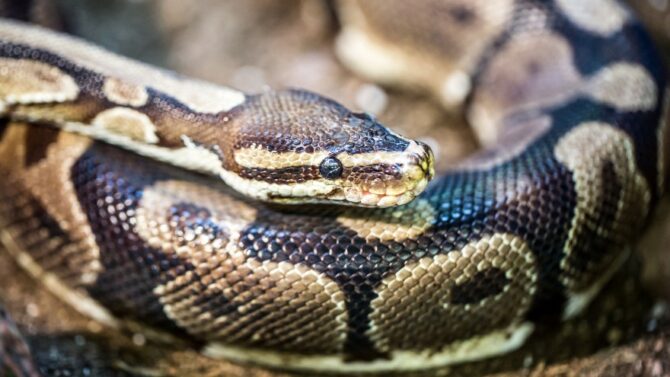Snakes, like most reptiles, are cold-blooded animals. They depend on their environmental temperature to function optimally.
If the weather is too cold, they may become incapable of maintaining some of their activities, such as metabolism.
During the rainy seasons, their holes and dens become flooded and too cold. Therefore, snakes move out of their flooded dens and caves to search for a dry shelter. Snakes also come out in the rain to hunt for food because of the abundance of prey like frogs.
Do snakes come out in the rain?
In times of rainfall, the animal kingdom has a high breeding record. Consequently, food is abundant in the ecosystem to keep the food chain thriving.
Hence, snakes come out in the rain to look for food and a dry shelter.
Apart from seeking a new home, snakes come out when its raining to hunt for food because, during the rainy seasons, there is more availability of prey.
Animals such as frogs are also out hunting; some species of snakes love to eat frogs.
What does a snake do when it rains?
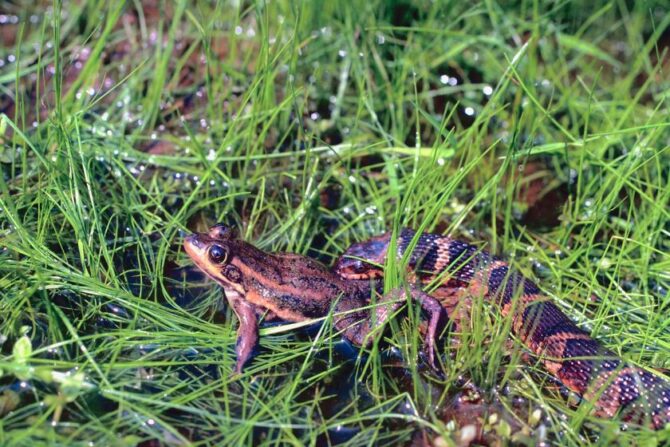
Sadly, snakes usually lose their homes to flood when it rains heavily, so they come out to people’s abodes, sheds, barns, debris, and abandoned buildings seeking a new home.
Snakes become very active when it rains, they go hunting for prey such as rats, mice, frogs, etc.
After rainfall, these reptiles are easily seen underneath rocks, walkways, and hiding spots that could serve as new homes for them.
Cases of snake bites also increase during the rainy season.
Why do snakes come out when it is raining?
- To prey and hunt for food
- To keep warm because their underground home might be too cold
- Snakes come out in the rain to search for a new shelter
Are snakes active in rain?
Snakes might be active in the rain, preying and hunting for food such as frogs and fish as they are ample in rainy seasons.
These reptiles are actively seen in places such as barns, wonder rocks, and spots that are possibly good for them to stay.
It is advisable that you are careful when walking around after rainfall, and ensure to clear off surrounding bushes so that snakes are visible.
Where do snakes go when it rains?
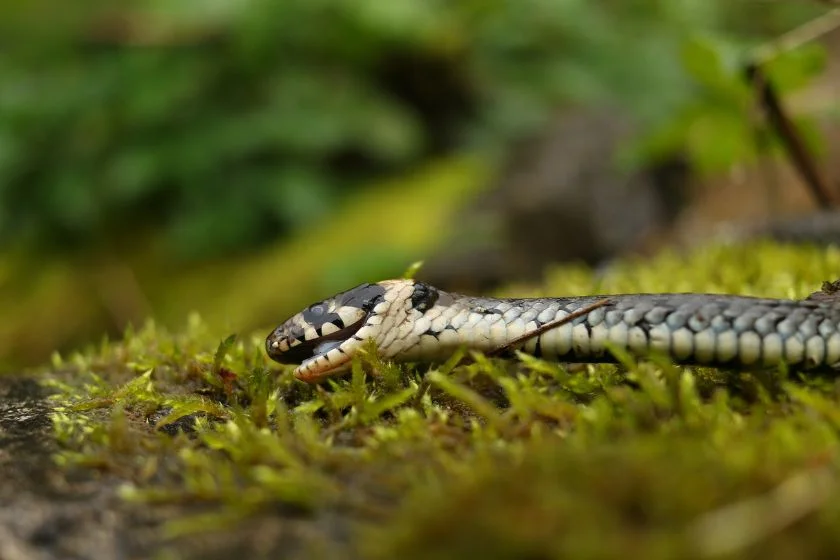
When it rains heavily and the soil is engulfed with water, snakes move from their drenched homes to higher ground and dry places such as highways and neighborhoods.
They go anywhere that will keep them warm and away from cold, even if it means people’s homes.
The rainy season is when snakes are out in search of new homes.
Do snakes come out after it rains?
When the rain is over, and the weather is warm, snakes come out after the rain to warm and dry themselves.
Because of the rain, the lower grounds become waterlogged; hence they come out to the higher grounds to keep dry.
Hence, that is why you see them lurking in your neighborhood—in your garage, lawn, and toilets.
Do rattlesnakes come out in the rain?
Rattlesnakes do not come out of their den just because they are slightly wet. Surprisingly, rattlesnakes love raindrops on their skin.
They coil up and sip the water on their bodies. But like every other species, they come outside searching for a new home if their den is flooded.
Rattlesnakes come out in the rain to hunt and prey on their victims.
How to protect yourself outdoor during or after it rains
- Be mindful when clearing and cleaning debris. Wear gloves that can protect you against snake bites.
- Wear snake-protective booths that are at least 10 feet high.
- Avoid steeping on a log, except you are seeing the other side.
- Keep your lawn areas short.
- If you see a snake approaching, do not fuss; move aside and allow it to proceed.
Do snakes go into people’s homes after it rains?
In search of humidity and safety, snakes find their way into people’s homes, such as in the basement, garage, cupboards, toilets, under the bed, etc.
If you see a snake indoors, you can gently lead it back to the wild if you are skilled in catching serpents; otherwise, animal removal or a snake catcher should be your best bet.
Never try to catch a snake on your own if you’re ever in doubt or fretting.
When are snakes more active – in summer or winter?
Snakes are active during the summer than in winter because the warmer climate helps them stay warm and keeps their metabolism up and running.
A winter period that is too cold may cause them to be sluggish and inactive.
Related Questions
Do snakes come out in cold weather?
Because snakes are cold-blooded animals, their activity level dwindles when the weather becomes too cold, less than 60° F. In very cold weather, most of these reptiles transition into a state called brumation.
Brumation is the season when snakes burrow into holes and caves and people’s property to keep warm and sleep for a longer time, waking up only to get food.
This season could last up to four months and more, depending on how long the temperature remains low.
Do snakes come out at night?
Nocturnal snakes love to come out at night to hunt for food, especially when the weather is too hot or cold during the day. They put off hunting until the dark hours, when the temperature is okay for them to come out.
This is commonly so during summer when the weather is at its highest.
Where do snakes go in winter?
Snakes are not commonly seen outside during winter when the climate is too cold. They usually burrow into holes, caves, logs, and homes to keep warm if the temperature falls below 60 degrees.
Can cold kill snakes?
Snakes can die of hypothermia: a condition where the body temperature becomes too cold and breaks down some internal organs.
Do snakes like water?
Snakes are cold-blooded animals, and some snakes live in water. These reptiles also hunt around water for fish and frogs.
However, they do not stay around waters that are considered too cold for them because excessive cold can lead to health concerns and in worse cases even death.
Conclusion
Snakes come out in the rain to look for food and find another home after losing their former nests to the flood.
Also, because they are cold-blooded animals, they come out in the rain to search for a place where they can find warmth to stay alive.
It is important to be careful during this period as more serpents are out searching for new abodes.
